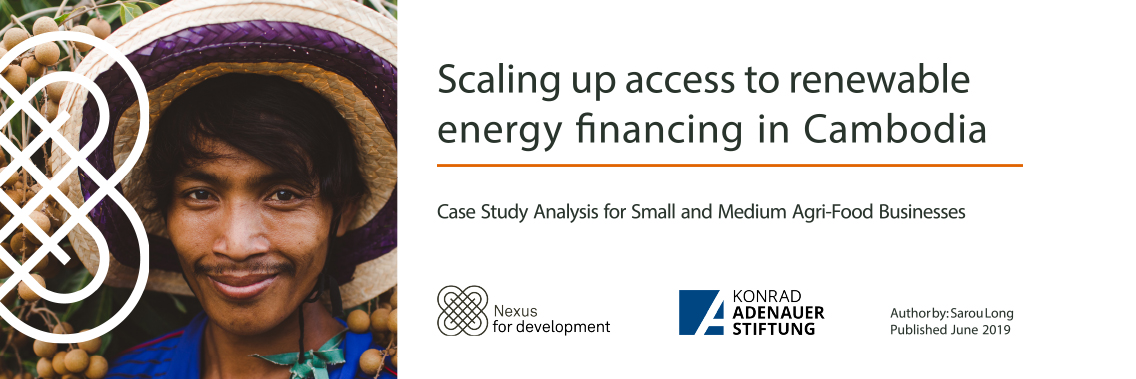The agriculture sector plays a key contributory role to Cambodia’s economic development. However, Cambodian farmers have difficulty competing with neighboring countries such as Thailand and Vietnam given their high dependency on grid electricity, which is expensive and unreliable.
About 6.9 million people, or 43.1% of the country’s population, have no access to dependable electricity in Cambodia. This issue is more prevalent in rural areas where the farmers operate and results in many farmers turning to alternative sources with a predominant reliance on back-up diesel generators, which leaves farmers vulnerable to diesel price fluctuations and also contributes to greenhouse gas emissions. Fossil fuel energy sources in the agricultural sector are expensive, inaccessible, and unreliable. These difficulties hinder agricultural productivity, which has major impacts on the country’s prospects for sustainable economic growth and development.
There are increasing opportunities for Cambodian people in rural and remote areas to gain access to electricity through the installation and use of renewable energy (RE) technologies. Access to affordable, reliable, and RE is “a vital input for a productive agriculture value chain”, and thus RE technologies such as solar systems and biogas digesters have already gained some traction and have been adopted by Cambodian farmers. Despite the potential for widespread use of RE technologies in Cambodia, the adoption rate remains low. Key barriers to broad adoption are lack of awareness and experience, lack of trust in the technology, and high upfront costs, but the most crucial inhibitor is a lack of access to appropriate financing alternatives.
Although Cambodia has one of the most vibrant microfinancing sectors in the world, RE loan products are not considered as a potential market by local financial institutions (FIs). The FIs are hesitant to engage in RE investments as they believe market opportunities are limited and investments are risky and unprofitable. In addition, the FIs do not have a good understanding of renewable energy technologies offered in the market, the requirements of an energy assessment to support due diligence and risk management, or the possible return prospects for such investments.
Energy costs represent between 6% to more than 50% of the operational costs for farmers in Cambodia, depending upon the size of farm and type of crops or livestock.
It is acknowledged that initially, FIs may face some challenges due to a lack of expertise in technical aspects of RE products. The major knowledge gaps include: (1) a lack of expertise in helping farmers to assess product quotes and the quality of the respective RE products, (2) limited to no existing expertise in offering technical support to clients for product maintenance, and (3) a lack of knowledge to ensure that RE technologies are installed properly and will lead to the realization of any estimated cost savings. However, to design RE loan products the FIs can develop partnerships with technology providers, which would support the transfer of knowledge and necessary expertise. It is recommended that FIs also engage with other stakeholders such as NGOs and governmental agencies who are already working in the RE sector to support the successful design and delivery of their RE loan products.
Read and download the report here.
Original source: Nexus for development
Published on 24 July 2019

